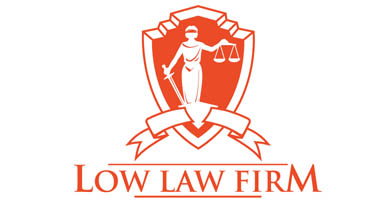What is the law of personal injury?
Understanding Personal Injury law
This area of law is incredibly complicated to understand. However, if you have been the victim of a personal injury of any kind we want to help you understand some of the basics. At The Low Law Firm in Abilene, Texas we have qualified lawyers to assist you in any type of injury claim you may have including, but not limited to, car wrecks, truck wrecks, commercial accidents, on the job injuries and oil field related accidents. If you have questions, feel free to call The Low Law Firm at (325) 455-1889.
 Personal injury law, also called “Tort Law,” is an area of law that deals with compensating individuals who have suffered harm due to the negligence or wrongful conduct of others. This legal domain encompasses a variety of incidents, including car accidents, slip and fall cases, oil field related accidents, and more. If you’ve been injured due to someone else’s actions, understanding personal injury law can help you seek justice and compensation.
Personal injury law, also called “Tort Law,” is an area of law that deals with compensating individuals who have suffered harm due to the negligence or wrongful conduct of others. This legal domain encompasses a variety of incidents, including car accidents, slip and fall cases, oil field related accidents, and more. If you’ve been injured due to someone else’s actions, understanding personal injury law can help you seek justice and compensation.
What is a Tort?
In legal terms, a tort is a civil wrong that causes harm or loss to an individual, leading to legal liability for the person who commits the wrongful act. Torts can be intentional, such as assault or fraud, or they can result from negligence, which is the failure to exercise reasonable care.
What is Negligence?
Negligence is a specific type of tort where harm is caused by someone’s failure to act as a reasonably prudent person would under the same or similar circumstances. Negligence forms the basis for most personal injury claims.
Elements of a Negligence Claim
To successfully bring a negligence claim, the plaintiff must prove the following four elements:
Duty of Care: The defendant owed a legal duty of care to the plaintiff. This duty arises from the relationship between the parties or from the defendant’s actions.
Breach of Duty: The defendant breached this duty by failing to act as a reasonably prudent person would in a similar situation.
Causation: The defendant’s breach of duty caused the plaintiff’s injuries. This includes both actual cause (“but for” the defendant’s actions, the injury would not have occurred) and proximate cause (the injury was a foreseeable result of the defendant’s actions).
Damages: The plaintiff suffered actual harm or losses as a result of the defendant’s actions. This can include physical injuries, emotional distress, and financial losses.
Frequently Asked Questions About Negligence in Texas
1. What is the statute of limitations for a negligence claim in Texas?
In Texas, the statute of limitations for filing a personal injury lawsuit based on negligence is generally two years from the date of the injury. This means you have two years to file a lawsuit, or you may lose your right to seek compensation.
2. What is comparative negligence, and how does it affect my claim in Texas?
Texas follows a modified comparative negligence rule. Under this rule, if you are found to be partially at fault for your injury, your compensation will be reduced by your percentage of fault. However, if you are found to be more than 50% at fault, you cannot recover any damages.
3. Can I sue for emotional distress in a negligence claim?
Yes, in Texas, you can recover damages for emotional distress as part of a negligence claim if you can prove that the emotional distress was a direct result of the defendant’s actions.
4. What types of damages can I recover in a negligence lawsuit?
In a negligence lawsuit in Texas, you can recover compensatory damages, which include:
Economic Damages: Medical expenses, lost wages, and property damage.
Non-Economic Damages: Pain and suffering, emotional distress, and loss of enjoyment of life.
Punitive Damages: In cases of gross negligence or malicious conduct, punitive damages may be awarded to punish the defendant and deter similar behavior.
5. How do I prove the defendant was negligent?
To prove negligence, you must gather and present evidence showing that the defendant owed you a duty of care, breached that duty, caused your injuries, and resulted in damages. This can include medical records, witness testimonies, expert opinions, and accident reports.
Understanding the principles of personal injury law, particularly tort and negligence, is crucial if you or a loved one has been injured due to someone else’s actions. Knowing the elements of a negligence claim and the specifics of Texas law can help you navigate the legal process and seek the compensation you deserve. If you have any questions or need legal assistance, consulting with a qualified personal injury attorney is always a wise step. At The Low Law Firm, we have handled all types of personal injury claims. Call an experienced personal injury attorney in Abilene, Texas today at (325) 455-1889.
